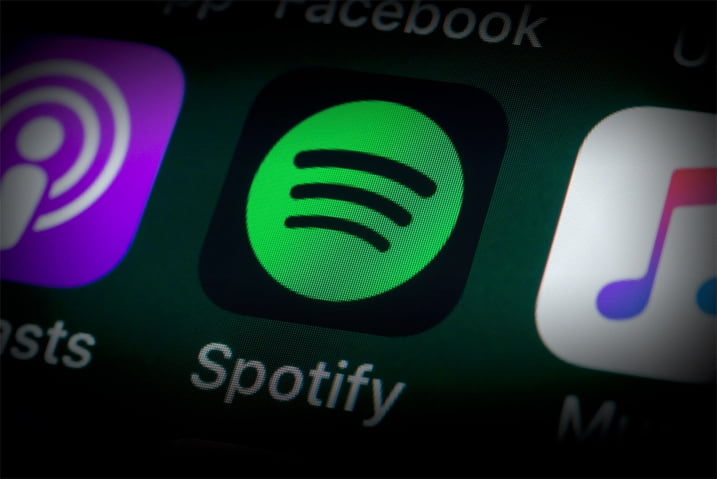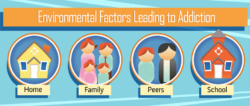While artists may not be any more in love with Spotify than they were a decade ago, it’s becoming increasingly apparent that the platform isn’t changing its business model or going away – and indeed, it now seems that it’s only going from strength to strength. Having so many ‘captive’ listeners spending so much time at home has probably helped the company’s user and subscription numbers in recent months, but this week Spotify set a brand new record. It now has three hundred million active users logging into its service every single month. Of those users, around 138 million are paying for a premium subscription to do so. Subscription numbers like that are comparable to Netflix and are a sign of a company in rude health.
Spotify’s dominance of the music marketplace is helped by the fact that unlike Netflix or Amazon Prime, it doesn’t have many strong competitors. Amazon’s music service, like iTunes, is similar but different, and not as popular. Deezer runs a broadly comparable service but has a fraction of the membership. The streaming wars that dominate TV and movie streaming services impact all of the companies that operate within that sector and can be compared to the battles between online slots websites which operate on a similar principle, but the same isn’t true of music. In fact, online slots might one day be a bigger competitor for Spotify than any other music service is given the number of bands and recording artists who are currently signing up to have their own licensed online slots products created, but that day is a long way off. There are millions of online slots UK users all around the world, but only a handful of official music-themed online slots at the time of writing. Spotify is utterly dominant and still growing larger.
The quarterly increase in Spotify’s subscriber base by the end of June 2020 is statistically significant. In reaching the figure of 138 million paying users, it’s attracted 27% more subscribers than it had at the same point in 2019. By contrast, Apple is believed to have about sixty million paying music customers on its books. That means Spotify is shifting more than double the number of subscriptions of its nearest rival. The company also monetizes the other 150 million-plus regular listeners it has by forcing them to listen to adverts, which brings in even more revenue. Based on current projections, the service will reach 317 million listeners and around 144 million paying customers by the end of the year’s third quarter. Some of its success has to be put down to the fact that the company offers its aforementioned ‘free’ tier with advertising. Amazon is yet to introduce a free level, and the lack of a facility for potential customers to trial the service for free is perceived by some to be a barrier to entry for music fans who might otherwise be inclined to give Amazon a try.
In among all the financial and subscriber stats are some interesting bits of information about how people now listen to music, and who they’re listening to. The top ten percent of regularly-played songs come from a staggering 43,000 different performers covering every genre, every theme, and every region of the world. That includes a vast number of performers who are entirely unknown to a mainstream audience but clearly enjoy strong popularity with their own devoted fanbase. Aside from that, people are using the platform for more than just listening to music. Almost a quarter of subscribers (the figure is currently 21%) also regularly listen to Spotify-exclusive podcasts, which have been a significant focus of the company’s promotion activities during the past twelve months. Spotify executives are still working on persuading more popular podcasters to come aboard the platform on an exclusive basis, and if they’re successful, that number will likely rise even higher.
Despite all the eye-catching headlines, it isn’t all good news. Even with all of the additional subscribers, the company posted a loss for the second quarter of 2020. That was put down to an increase in operating costs of nearly fifty percent, accompanied by a drop in advertising revenue as businesses look to cut back during the current global crisis. Under normal circumstances, that would be a reason to worry, but Spotify has already assured shareholders that advertising revenues are already on the way back up, and the spike in operating costs was mostly made up of one-time expenses. In terms of hard cash, revenue for the quarter came in at $1.89bn, but a net loss of $356 million was recorded.
Looking further ahead, the company might soon give YouTube a reason to be concerned. The platform has now begun to experiment with ‘video podcasts,’ which are currently hosted on a trial basis for a small and select group of creators. Should the new visual format prove to be successful, it’s likely that the trial will be expanded – and if the revenue split is attractive, the owners of popular YouTube channels might be persuaded to go looking for pastures new. It’s also possible – and perhaps even likely – that the music service could eventually be expanded to include music videos, which again are almost exclusively hosted on YouTube at the moment. Spotify has already seized the lion’s share of the music streaming market. If it sets its eyes on video streaming next, there might be nothing and nobody that can stand in its way based on its performance to date.







